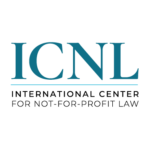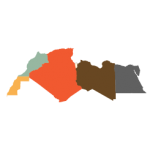Assessment of Associational Restrictions on Civic Space in Morocco
Background:
In the wake of the Arab uprisings, the Middle East and North Africa (MENA) region has witnessed a complex interplay of political, economic, and social instability. These multifaceted challenges have prompted several Arab nations to view civil society organizations (CSOs) with growing suspicion, perceiving them as potential threats to established power structures. In certain instances, governments, already weakened by political and economic turmoil, have sought to curtail the activities of CSOs, viewing them as sources of dissent or opposition. This pattern has materialized both formally, through the imposition of legal constraints on CSOs’ establishment, operations, and funding, and informally, through the misapplication of legal mechanisms, administrative hurdles, and harassment of CSOs.
In response to these developments, the International Centre for Not-for-Profit Law (ICNL) engaged Triangle to conduct a comprehensive research initiative focusing on the constraints faced by civil society in Morocco. This research, centered on an assessment of freedoms of assembly, expression, and association, aims to shed light on the practical repercussions of these restrictions. It seeks not only to identify entry points for mitigation but also to develop effective strategies and tools that enable CSOs to navigate and adapt to restrictive or closed civic spaces.
Morocco’s experience during the Arab uprisings presents a unique context. Unlike some of its regional counterparts, Morocco did not undergo a complete political upheaval. Instead, it embarked on a trajectory of political reform and instituted a new constitution in 2011 in response to mounting discontent. However, despite these reforms, Morocco’s classification in Freedom House’s 2015 report as “partly free” underscored lingering concerns related to civil liberties and political rights. The persistence of protests, particularly in the predominantly Berber regions of the Rif since 2017, has continued to test the boundaries of the political reform process initiated in 2011. This backdrop underscores the pressing need to comprehend the policies and practices restricting civic space in Morocco and to explore avenues for enhancing the supportive environment for civil society organizations (CSOs).
Triangle’s Assessment:
- Comprehensive Research Scope: Triangle undertook an extensive research project on behalf of the International Centre for Not-for-Profit Law (ICNL) to investigate the state of civil society in Morocco, focusing on freedoms of assembly, expression, and association. The study encompassed both quantitative and qualitative analyses, offering a holistic view of the challenges and opportunities within the Moroccan civic space.
- Contextualizing the Arab Uprisings: Recognizing the evolving landscape of the Middle East and North Africa (MENA) region following the Arab uprisings, our research sought to contextualize Morocco’s unique experience. While the country did not witness a complete political overhaul, it embarked on a path of reform marked by the adoption of a new constitution in 2011. Our analysis delved into the dynamics of this transformation and its implications for civil society.
- Assessing Practical Effects: One of the primary objectives of our research was to gauge the practical impact of restrictions on civil society in Morocco. This involved a meticulous examination of legal frameworks, administrative practices, and societal attitudes that shape the operating environment for civil society organizations (CSOs). Through surveys, interviews, and focus groups, we gathered insights into how these constraints affected the daily work of CSOs.
- Identifying Mitigation Strategies: In response to the challenges faced by CSOs, we identified mitigation mechanisms employed by these organizations to navigate and adapt to restrictive civic spaces. By pinpointing effective strategies and tools, our research aimed to provide actionable recommendations for CSOs and stakeholders seeking to promote an enabling environment.
- Stakeholder Engagement: Triangle actively engaged with stakeholders, including CSOs, government representatives, and experts in Morocco. This dialogue fostered a deeper understanding of the nuances surrounding civic space restrictions and generated diverse perspectives that enriched our research findings.
- Recommendations for Sustainable Change: Building on our comprehensive analysis, we developed a set of recommendations aimed at mitigating restrictions on CSOs in Morocco. These recommendations encompassed a range of areas, from legal reforms to strategies for sustainable funding, with the goal of fostering a more supportive environment for civil society.
Project:
Assessment of Associational Restrictions on Civic Space in Morocco

Morocco

Service Type:
Qualitative Research, Policy Advisory